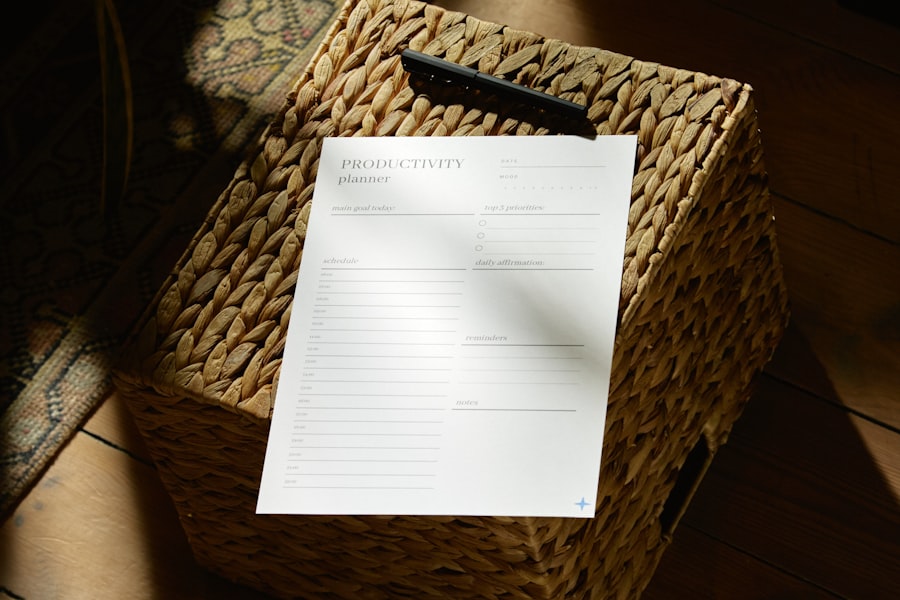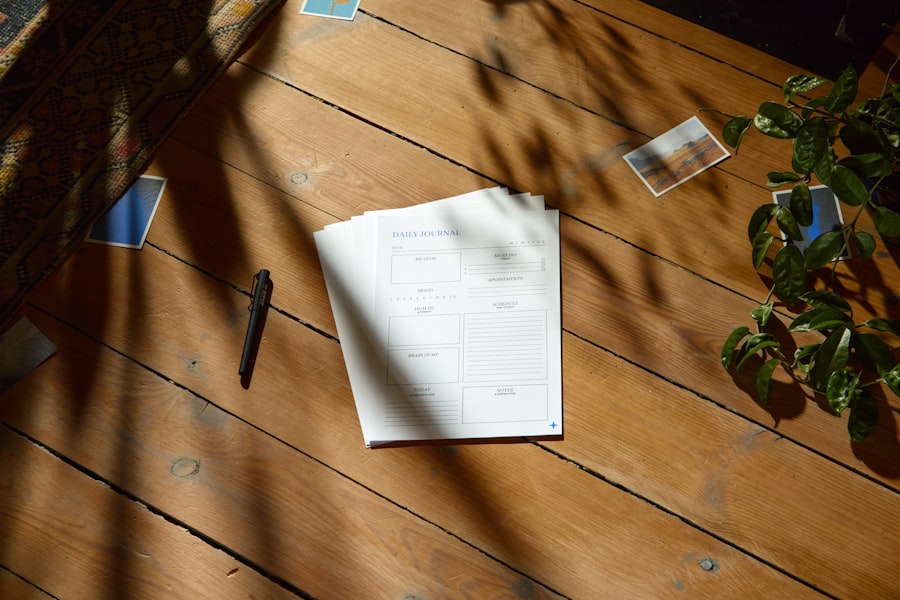Work-life balance is a critical component of overall well-being and happiness. It involves maintaining equilibrium between professional responsibilities and personal life, including family time and leisure activities. Achieving a healthy work-life balance is essential for reducing stress, preventing burnout, and promoting fulfillment in both professional and personal domains.
Individuals who effectively manage their time and prioritize commitments often experience improved mental and physical health, stronger relationships, and increased workplace productivity. Work-life balance extends beyond mere time allocation; it encompasses setting boundaries, managing expectations, and prioritizing self-care. This concept emphasizes that personal well-being is equally important as professional success, and neglecting either aspect can lead to negative outcomes.
Understanding the significance of work-life balance enables individuals to make conscious efforts towards creating a harmonious and fulfilling life that integrates career aspirations and personal satisfaction.
Key Takeaways
- Work-life balance is crucial for overall well-being and productivity
- Assess your current lifestyle and priorities to understand where adjustments are needed
- Set realistic goals and boundaries to ensure a healthy balance between work and personal life
- Create a daily schedule that prioritizes both work and personal time to maintain balance
- Implement self-care practices into your routine to support your physical and mental well-being
- Communicate your boundaries and needs to others to ensure they are respected
- Adjust and tweak your routine as needed to maintain a healthy work-life balance
Assessing Your Current Lifestyle and Priorities
Identifying Areas of Imbalance
This process requires introspection and self-awareness to identify areas of imbalance or dissatisfaction in your life. It also involves examining your priorities and determining what truly matters to you in both your professional and personal life.
Gaining Clarity and Insight
By assessing your current lifestyle and priorities, you can gain clarity on what areas of your life may need more attention or adjustment. This self-reflection can help you identify potential sources of stress or dissatisfaction, as well as areas where you may be neglecting important aspects of your life.
Discovering What Brings You Joy and Fulfillment
Additionally, this process can help you gain insight into what brings you joy, fulfillment, and a sense of purpose, which can guide you in making decisions that align with your values and priorities.
Setting Realistic Goals and Boundaries

Setting realistic goals and boundaries is essential for maintaining a healthy work-life balance. This involves establishing clear objectives for both your professional and personal life, as well as defining limits and guidelines for how you allocate your time and energy. By setting realistic goals, you can create a roadmap for achieving success in your career while also making room for personal growth and fulfillment.
Additionally, setting boundaries is crucial for protecting your personal time, managing expectations, and preventing burnout. When setting goals, it is important to be specific, measurable, achievable, relevant, and time-bound (SMART). This approach can help you create clear objectives that are attainable and aligned with your overall vision for a balanced life.
Similarly, setting boundaries involves communicating your needs and limitations to others, whether it be colleagues, friends, or family members. By establishing clear boundaries, you can protect your personal time, reduce stress, and create a healthier work-life dynamic.
Creating a Daily Schedule that Prioritizes Both Work and Personal Time
Creating a daily schedule that prioritizes both work and personal time is a key component of achieving work-life balance. This involves structuring your day in a way that allows you to fulfill your professional responsibilities while also making time for personal activities, relaxation, and self-care. By creating a balanced schedule, you can ensure that you are allocating adequate time to both work and personal life, which can help prevent feelings of overwhelm and burnout.
When creating a daily schedule, it is important to prioritize tasks based on their importance and urgency. This can help you allocate your time more effectively and ensure that you are focusing on high-priority activities without neglecting other important aspects of your life. Additionally, scheduling regular breaks and incorporating leisure activities into your daily routine can help you recharge and maintain a healthy work-life balance.
By creating a daily schedule that prioritizes both work and personal time, you can cultivate a sense of harmony and fulfillment in your daily life.
Implementing Self-Care Practices into Your Routine
Implementing self-care practices into your routine is essential for maintaining a healthy work-life balance. Self-care involves taking deliberate actions to prioritize your physical, emotional, and mental well-being. This can include activities such as exercise, meditation, spending time with loved ones, pursuing hobbies, or engaging in activities that bring you joy and relaxation.
By incorporating self-care practices into your routine, you can reduce stress, improve your overall health, and enhance your ability to manage the demands of both work and personal life. Self-care is not selfish; it is an essential aspect of maintaining overall well-being and resilience. By taking care of yourself, you are better equipped to handle the challenges and pressures of daily life, which can ultimately improve your performance in both professional and personal spheres.
Additionally, self-care can help prevent burnout and reduce the negative impact of stress on your physical and mental health. By implementing self-care practices into your routine, you can cultivate a greater sense of balance and fulfillment in your life.
Communicating Your Boundaries and Needs to Others

Establishing Mutual Respect and Understanding
By communicating your boundaries, you can establish mutual respect and understanding with others while also protecting your personal time and well-being.
Effective Communication in Relationships
Effective communication is key to setting boundaries and managing expectations in both professional and personal relationships. By clearly articulating your needs and limitations, you can prevent misunderstandings, reduce conflict, and create a supportive environment that respects your work-life balance.
Building Healthy Relationships
Additionally, communicating your boundaries can help you establish healthy relationships built on mutual respect and consideration for each other’s needs.
Adjusting and Tweaking Your Routine as Needed
Adjusting and tweaking your routine as needed is an ongoing process that is essential for maintaining a healthy work-life balance. Life is dynamic, and circumstances may change over time, requiring adjustments to your daily schedule or priorities. By remaining flexible and open to change, you can adapt to new challenges or opportunities while continuing to prioritize both work and personal life.
Regularly evaluating your routine and making necessary adjustments can help you stay aligned with your goals and values while also accommodating changes in your professional or personal life. This may involve re-evaluating your goals, reassessing your priorities, or making changes to your daily schedule to better reflect your current needs and circumstances. By adjusting and tweaking your routine as needed, you can ensure that you are continuously striving for a balanced and fulfilling life.
In conclusion, achieving a healthy work-life balance is essential for overall well-being and happiness. By understanding the importance of work-life balance, assessing current lifestyle and priorities, setting realistic goals and boundaries, creating a daily schedule that prioritizes both work and personal time, implementing self-care practices into the routine, communicating boundaries and needs to others, as well as adjusting the routine as needed; individuals can cultivate a harmonious and fulfilling life that encompasses both career aspirations and personal fulfillment. It is an ongoing process that requires self-awareness, intentionality, and adaptability to maintain a healthy equilibrium between professional responsibilities and personal well-being.
If you’re looking to create a routine that supports work-life balance, you may also be interested in creating a career development plan. This step-by-step guide from Careers Help can help you set goals and make progress in your professional life while still maintaining a healthy balance with your personal life. Developing adaptability and flexibility is also crucial in achieving work-life balance, and this article on Careers Help can provide valuable insights on how to navigate the demands of both work and personal life.
FAQs
What is work-life balance?
Work-life balance refers to the equilibrium between the time and effort dedicated to work and personal life. It involves managing responsibilities at work and at home in a way that allows individuals to prioritize their well-being and maintain a healthy lifestyle.
Why is work-life balance important?
Work-life balance is important for maintaining physical and mental health, reducing stress, and improving overall well-being. It also contributes to higher job satisfaction, increased productivity, and better relationships with family and friends.
How can I develop a routine that supports work-life balance?
Developing a routine that supports work-life balance involves setting boundaries, prioritizing tasks, scheduling regular breaks, and making time for personal activities and relaxation. It also requires effective time management and communication with colleagues and family members.
What are some tips for creating a work-life balance routine?
Some tips for creating a work-life balance routine include setting realistic goals, delegating tasks when possible, establishing a consistent daily schedule, and learning to say no to additional commitments. It’s also important to disconnect from work during personal time and to engage in activities that promote relaxation and well-being.
How can a work-life balance routine benefit my overall well-being?
A work-life balance routine can benefit overall well-being by reducing stress, preventing burnout, and improving physical and mental health. It can also lead to greater job satisfaction, stronger relationships, and a more fulfilling personal life.



